Tag Archives: North Pacific Fishery Management Council
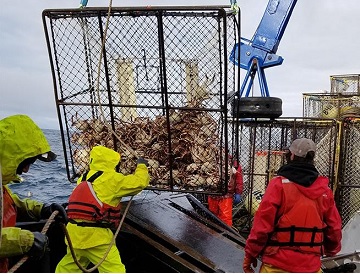
NOAA, ADFG, Bering Sea Crabbers Teaming Up On Red Crab Fishery Research
Tempestuous weather and icy seas make winter research on Bristol Bay red king crab challenging. This winter, crab fishermen are working together with scientists to make it possible. The Bering Sea crab industry is partnering with NOAA Fisheries’ Alaska Fisheries Science Center and the Alaska Department of Fish and Game to meet a critical need for winter data on Bristol Bay Red king crab. Scientists and fishermen will work together on the month-long field research, set to launch in March. The research responds directly to data requests from the North Pacific Fishery Management Council to inform their management decisions. Photos, >click to read< 10:12
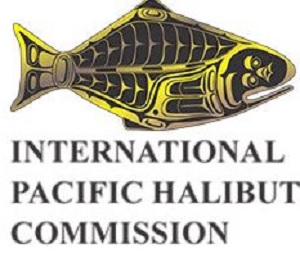
Commission cuts halibut limits across Alaska, Canada
The International Pacific Halibut Commission adopted its annual catch limits for halibut in 2023 from California to the Bering Sea at its meeting Jan. 27. Coastwide, the total constant exploitation yield, a term for how many total halibut longer than 26 inches are removed from the population, regardless of reason, is just shy of 37 million pounds, a 10% drop from 41.2 million pounds last year. Every regulatory area received a cut except for 2A, which covers California, Oregon and Washington. Area 3A, which covers the central Gulf of Alaska, and area 4A, which covers the eastern Aleutians, saw the largest cuts at 17% each. Southeast Alaska only saw a 1% cut, while the western Gulf, western Aleutians and central Bering Sea each saw 6% cuts. The Canadian coast saw a 10.3% cut. >click to read< 11:50
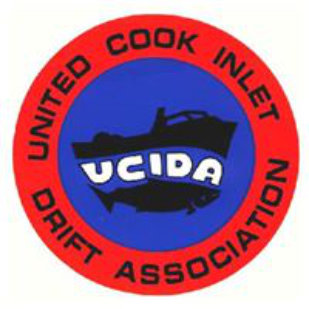
Council has 4 months to fix Cook Inlet salmon fishery management plan
The future of the Cook Inlet salmon fishery is again in the air as the North Pacific Fishery Management Council debates how to manage it after a federal court ruled that it has to write a new plan. It’s been six years since a federal court ruled that the council’s decision to remove Cook Inlet from a federal management plan and defer entirely to the state was illegal. The council initially decided to remove Cook Inlet in 2012, a decision that the United Cook Inlet Drift Association challenged in court. In 2016, the court agreed with the association, ordering the council to create a new federal management plan that includes the federal waters of Cook Inlet. >click to read< 09:47
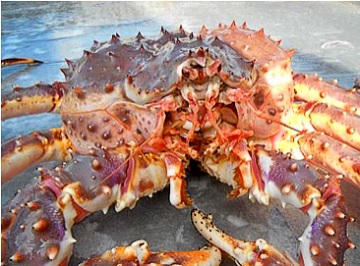
Alaska crab fishery collapse seen as warning about Bering Sea transformation
Less than five years ago, prospects appeared bright for Bering Sea crab fishers. Stocks were abundant and healthy, federal biologists said, and prices were near all-time highs. Now two dominant crab harvests have been canceled for lack of fish. For the first time, the Alaska Department of Fish and Game in October canceled the 2022-2023 harvest of Bering Sea snow crab, and it also announced the second consecutive year of closure for another important harvest, that of Bristol Bay red king crab. What has happened between then and now? A sustained marine heat wave that prevented ice formation in the Bering Sea for two winters, thus vastly altering ocean conditions and fish health. “We lost billions of snow crab in a matter of months,”,,, >click to read< 18:54
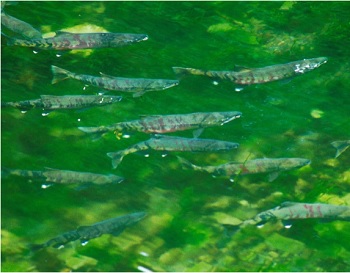
Alaska task force’s final report calls for new rules and more research to address seafood bycatch
Gov. Mike Dunleavy, who created the task force a year ago, released the group’s final report late Thursday. “I look forward to working with task force members and stakeholders to do everything we can to get more fish to return to Alaska’s waters,” Dunleavy said in a statement. The collapse of salmon runs vital to western Alaska — and public complaints that too many salmon were being intercepted at sea before returning to spawning grounds — triggered the creation of the Alaska Bycatch Task Force. However, its work extended to bycatch of various crab species and halibut. To some degree, bycatch is unavoidable, the task force said. >click to read< 09:10
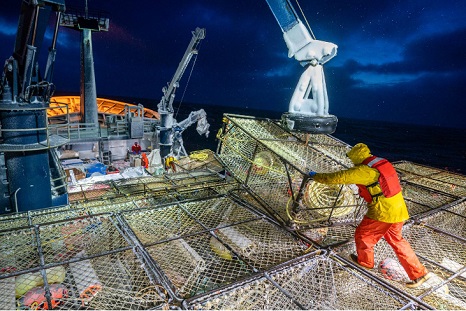
Bering Sea crab collapse spurs push for stronger conservation measures
For Bering Sea crabber Gretar Gudmundsson, December is a month for preparing his two boats for the winter harvest season. But not this year. For the first time, the winter snow crab season has been scuttled. The move has upended seasonal rhythms, and the financial stability of a crab fleet already slammed by a two-year shutdown of the fall harvest of red king crab. “We didn’t ship up any groceries. We didn’t recruit any crew. We’re not laying on fuel. Nothing is happening,” Gudmundsson said. Crabbers are pressing for more restrictions on pollock fleets, which deploy large cone-shaped trawl nets to scoop up more than 3.2 billion pounds annually of this fish in the biggest single-species harvest in North America. >click to read< 11:55
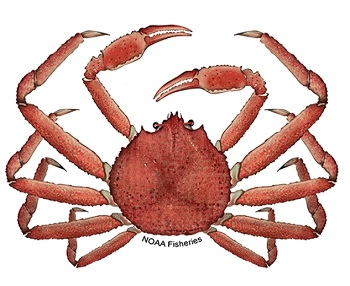
Did climate change really kill billions of snow crabs in Alaska?
In October 2022, the National Oceanic and Atmospheric Administration (NOAA) announced that the lucrative snow crab fishery in the Bering Sea would close for the first time, following a population decline of 80% between 2018 and 2022. While fisheries managers and biologists say climate change is to blame for the species’ retreat, some fishers and crab experts suggest that trawling bycatch and other fishing activity may have played a role in the snow crab’s decline. The fishery’s closure has amplified a chorus of concerns about Alaska’s trawling industry and the knowledge gaps around its potential impact on fisheries. The disappearance of billions snow crabs from the Bering Sea has captivated the world’s attention since Alaska shut down the fishery for the first time in October 2022. But where exactly did these snow crabs go? And what caused them to vanish so quickly? >click to read< 08:02
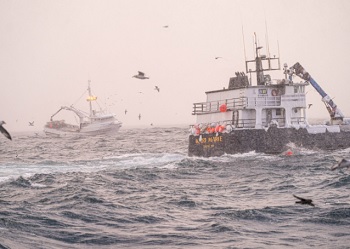
Massive losses predicted from Bering Sea crab closures
While other crab stocks have been declining in the North Pacific for years, the snow crab fishery’s collapse is doubly shocking for the industry. Not only is it one of the larger crab fisheries by volume in Alaska, it has also gone from booming and healthy to overfished and collapsing within five years, with little warning or clear explanation. Fishermen who made investments in permits and boats less than five years ago are now looking at bankruptcy. Alaska Bering Sea Crabbers, the trade organization representing the industry, has estimated the direct financial losses at about $500 million. Adding in the ripple effects to the economy, that estimate rises to about $1 billion. >click to read< 07:50
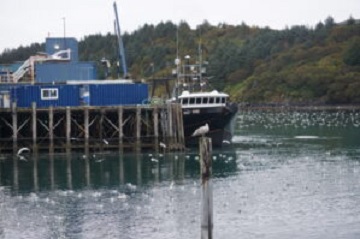
Bycatch task force considers new rules, more research to protect Alaska fish intercepted at sea
In the search for a solution to the problem of bycatch, the unintended at-sea harvest of non-target species, the stakes in Alaska are high. Now a special task force is nearing the end of a year-long process to find solutions that satisfy competing interests to the problem of bycatch, which refers to fish that are caught incidentally by commercial fishers who are targeting other fish. The Alaska Bycatch Review Task Force, created by Gov. Mike Dunleavy last November, is due to release its final report by the end of next month. At least two additional meetings are to be held between now and then. >click to read< 11:50
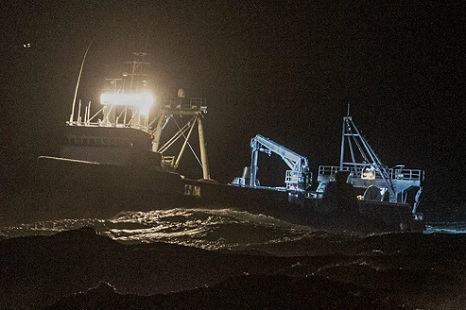
Conservation concerns cancel Alaska’s Bering snow, king crab seasons
Alaska officials have canceled the fall Bristol Bay red king crab harvest, and in a first-ever move, also scuttled the winter harvest of smaller snow crab. The move is a double whammy to a fleet from Alaska, Washington and Oregon pursuing Bering Sea crab in harvests that as recently as 2016 grossed $280 million. “I am struggling for words. This is so unbelievable that this is happening,” said Jamie Goen, executive director of the Alaska Bering Sea Crabbers. “We have third-generation fishermen who are going to go out of business.” >click to read< 14:47
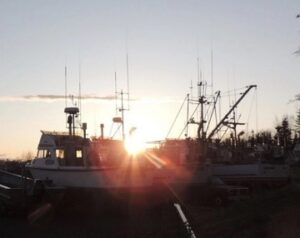
Feds working on new plan for contentious Cook Inlet fishery
Federal fisheries managers say they’ve started working on a new management plan for the Cook Inlet salmon fishery, months after a court said their plan to completely close the fishery was unjust. At a meeting in Anchorage Thursday, Jon Furland with NOAA Fisheries told the North Pacific Fishery Management Council that time is of the essence to create a new plan and comply with the court. In 2020, following a lawsuit from the United Cook Inlet Drift Association over management of the drift fishery, the council voted to close a large swath of Cook Inlet to commercial salmon fishing. The closure applied to Cook Inlet’s federal waters,,, >click to read< 16:48
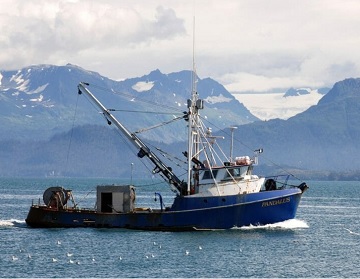
In victory for commercial fishermen, court orders Cook Inlet fishery to reopen
Cook Inlet drift fishermen can fish the federal waters of the inlet this summer after all. That’s after a district court judge shot down a federal rule that would have closed a large part of the inlet to commercial salmon fishing. Fishermen said it would have been a death knell for the fishery, which has 500 drift permit-holders. One of those permit-holders is Erik Huebsch, of Kasilof. He’s vice president of the United Cook Inlet Drift Association, which filed the suit. And he said he’s pleased. “Opening the EEZ is vital to the fleet,” Huebsch said. “Without opening the EEZ, the drift fishery is really not viable. That’s where we go to catch fish.” >click to read< 12:19
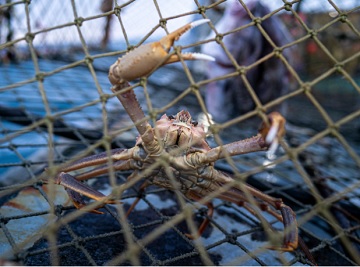
Scientists point to climate as likely cause for snow crab decline
Even as scientists are still trying to figure out why the Bering Sea snow crab stock crashed in 2021, federal managers are working on a plan to help rebuild it. Data from last year’s survey at this point seems to confirm that there was a massive decline in the number of young snow crab in the Eastern Bering Sea—something like 99% fewer female snow crab showed up in the survey from 2021. Jaime Goen, Alaska Bering Sea Crabbers, told the council that the crab industry is reeling from the revenue loss both in the snow crab fishery and the complete closure of the Bristol Bay red king crab fishery this year. What hurt was the suddenness — a few years ago, the crab stocks were looking hopeful and like a good investment, and many businesspeople and crew members bought in with the hopes those investments would pay off, she said. “Now those same people are facing bankruptcy,” >click to read< 22:00
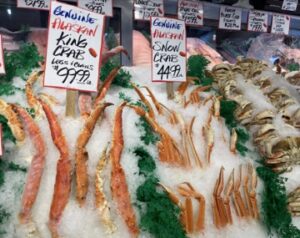
NPFMC wants more information on decline in king crab stocks
Two decades into the decline of Bristol Bay red king crab, with stocks now too low for a commercial fishery, the fight continues at the North Pacific Fishery Management Council over what protections to take for the crab in danger and how soon to do it. Alaska Bering Sea Crabbers had hoped that federal fisheries managers might put restrictions on groundfish fishing in the Red King Crab Savings Area, as well as other measures, during the NPFMC’s April meeting in Anchorage. Instead, the council voted to have staff prepare an expanded discussion paper for its October meeting that includes analysis of the impacts on annual or seasonal closures to pelagic trawl, groundfish, pot and longline gear in the BBRKA, including impacts on target catch, fishing timing relative to crab mating and molting, crab avoidance and other prohibited species catch and non-target species. >click to read< 11:27
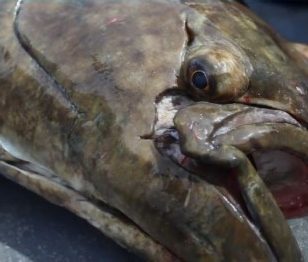
NPFMC ponders changes in the halibut catch sharing plan
When the North Pacific Fishery Management Council adopted its halibut Catch Share Plan back 2014, charter operators were granted 125% of their historic catch at low levels of abundance, with that additional 25% coming out of quota for the commercial longline sector. Commercial longliners were assured that no further uncompensated reallocations would be considered, but now federal fisheries managers are doing just that. The Halibut Coalition is urging its membership of commercial harvesters to write to the governors of Alaska, Washington and Oregon expressing their views, as the representatives of those states on the NPFMC voted in favor of considering changes to halibut allocations. >click to read< 13:41
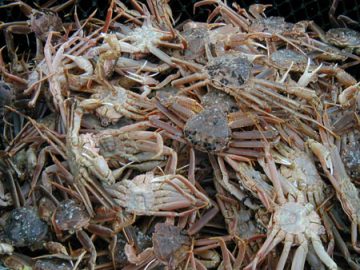
Bering Sea snow crab deemed ‘overfished’
After a sudden decline in the stock last year, federal managers have officially designated Bering Sea snow crab as overfished and are working on a plan to rebuild the stock. In October, the National Marine Fisheries Service determined that with its current low numbers, the stock of Bering Sea snow crab, also known as opilio crab, is officially overfished. However, the stock is “not subject to overfishing,” according to a report submitted to the North Pacific Fishery Management Council on the issue. That’s because the fishery removals aren’t above the level considered to be sustainable, rather it’s because the stock dropped for other reasons that scientists and managers aren’t entire sure of yet. >click to read<
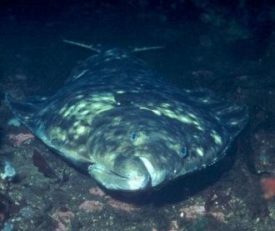
NPFMC ties limits on Bering Sea trawlers to halibut abundance
The council that manages fishing in federal waters voted to link groundfish trawl fishing in the Bering Sea and Aleutian Islands to halibut abundance today. The action caps, at least for now, a six-year debate about curbing halibut bycatch in Alaska. For many who have been following that debate, the decision comes as a surprise, since it’s expected to deal what trawlers say is a crushing blow to their fishery. >click to read< 09:10
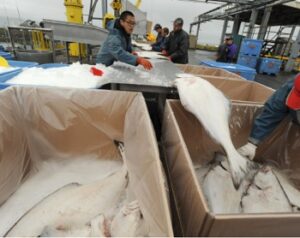
Bering Sea fishermen press NPFMC on halibut bycatch
After years of deliberations, the North Pacific Fishery Management Council is inching toward a decision on whether to tie halibut bycatch limits in the Bering Sea to abundance indices. The action, known formally as Bering Sea-Aleutian Islands halibut abundance-based management, or ABM, is intended to reduce bycatch of halibut in the Bering Sea by the Amendment 80 trawl fleet when the fish stocks are lower. The Amendment 80 fleet is a group of catcher-processor vessels that are allocated a portion of groundfish harvest. Each year, the fleet is bound to a hard limit on how many halibut they can take as bycatch, known as the prohibited species catch, or PSC limit. >click to read< 08:34
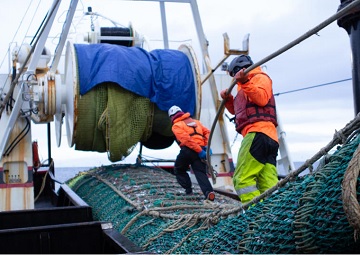
Dunleavy administration announces formation of bycatch task force
“We’ve had a reduction in or closure of the crab fisheries in the Bering Sea. The [North Pacific Fishery Management] Council is discussing how to deal with halibut bycatch, and I think there’s a lot of perception that there are bycatch issues associated with what’s happened with salmon in Western Alaska systems,” said Alaska Fish & Game Commissioner Doug Vincent-Lang. And, he says, his boss has taken notice. “I think the governor was hearing loud and clear that there was just a lot of noise around the issue of bycatch,” >click to read< 12:52
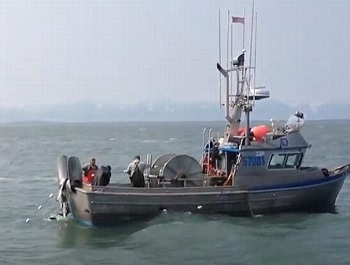
Commercial fishermen sue over Cook Inlet closure
Commercial fishermen are going to court in an attempt to keep Cook Inlet open to salmon fishing. That’s following a controversial decision by the feds to close a large swath of Upper Cook Inlet that’s long been managed by the state and is an important area for drift gillnet permit holders. The decision to close the federal Cook Inlet salmon fishery was approved by the feds last week but was first proposed last December by the North Pacific Fishery Management Council, which sets policy in Alaska’s federal waters. >click to read< 08:08

Cook Inlet Federal Waters Closed to Commercial Salmon Fishing
The Biden Administration has closed the federal waters of Alaska’s Cook Inlet to commercial salmon fishing for the 2022 Cook Inlet commercial salmon fishing season. This action closes a portion of the historically used fishing area for the Cook Inlet drift gillnet salmon fishery. NOAA Fisheries, the agency responsible for the stewardship of national marine resources, published the final rule in the Federal Register November 2, and it takes effect 30 days after that. >click to read< 13:51
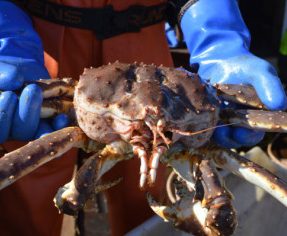
NPFMC wrestles with crab crisis – Disagreement in industry on expanding red king crab savings area
Commercial crab crews normally embarked on the Bristol Bay red king crab fishery are on the docks this October, with their fishery closed for lack of sufficient stocks, while federal fishery managers ponder how to restore the abundance required for the harvest to resume in coming seasons. During its October meeting, held virtually because of the ongoing pandemic, the North Pacific Fishery Management Council voted to request an analysis on likely impacts of expanding the red king crab savings area through emergency rule to shift the northern boundary from,,, >click to read< 08:15
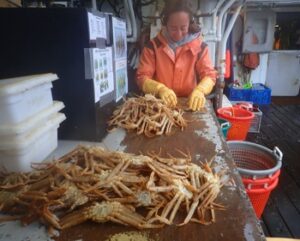
Faced with crashing crab stocks, council looks to swiftly analyze closures and trawl impacts
As crab fishermen face a dire season in Western Alaska this year, the North Pacific Fishery Management Council is looking for quick analysis and the fleet is looking for more extensive closures to protect some crab stocks. Survey data has shown an approximately 90% drop in snow crab stocks since the last survey, pushing acceptable catch limits down, while the long-term decline of Bristol Bay red king crab has led to a complete closure in the fishery for the first time since 1994. The Alaska Bering Sea Crabbers Association, the trade group that represents the majority of crab harvesters in the Bering Sea and Aleutian Islands rationalization program, has estimated a $200 million loss for the fishery. >click to read< 11:12
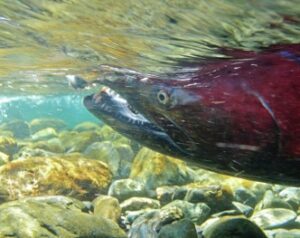
Trawler bycatch debate heats up after dismal 2021 returns
Chinook salmon returns were dismal virtually everywhere in Alaska this year, from Southeast to the Bering Sea, with few exceptions. That follows a trend, as abundance has declined over roughly the last decade. The North Pacific Fishery Management Council is debating changes in its meeting this month. Trawlers, which use weighted nets to drag either along the bottom or in midwater, are permitted a certain amount of bycatch as they fish for their target species, the largest of which is pollock. Bycatch is always a heated issue, but it is especially so now. >click to read< 07:10
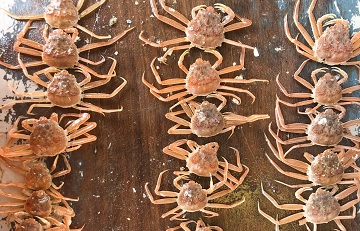
Alaska snow crab harvest slashed by nearly 90% after population crash in a warming Bering Sea
The snow crab is a mainstay of the Alaska crab boat fleet, much of it based in Washington, and the 2021-22 catch limit of 5.6 million pounds, announced Friday, is down 88% from the previous season. The 2021 fall harvest of Bristol Bay red king crab, another important source of revenue for that fleet, was canceled for this year because of too few females. The combined impacts of the closure and snow crab cutbacks are a big financial hit to crabbers who in past years have grossed more than $200 million from the two harvests. At a meeting of the North Pacific Fishery Management Council this week, crabbers called for additional restrictions in other harvests. >click to read< 09:30
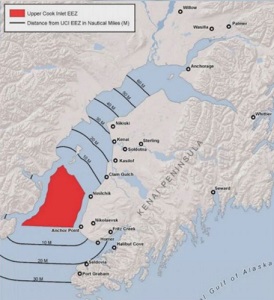
NPFMC decision puts Cook Inlet commercial salmon fishery in jeopardy
Final action by the North Pacific Fishery Management Council on commercial salmon fishing in Cook Inlet threatens to exclude drift gillnet harvesters from fishing in the inlet’s commercial waters at the start of the 2022 fishing season. In a near unanimous decision reached during the council’s virtual meeting on Monday, Dec. 7, the panel selected an alternative that would close off to the commercial fleet federal waters outside of three miles from shore, an area where most of the fleet get the bulk of its catch. >click to read< 16:43

Bush Caucus urges reduction in halibut bycatch caps
Five members of the Alaska Legislature’s Bush Caucus have asked Alaska Department of Fish and Game Commissioner Doug Vincent-Lang to advocate for a reduction of halibut bycatch caps during the virtual North Pacific Fishery Management Council now underway. “Millions of pounds of halibut are discarded as bycatch every year,”,,, The Bush caucus noted that halibut fishermen lose a portion of their annual allocation of halibut every year due to the currently high bycatch caps. >click to read< 08:27
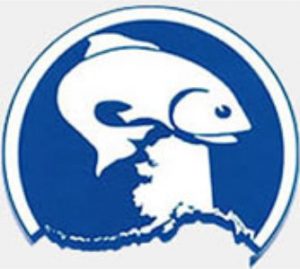
North Pacific Fishery Management Council meeting in Seattle, Jan. 27 thru Feb. 2, 2020
The North Pacific Fishery Management Council will meet at Renaissance Hotel in Seattle, Washington. . Read the Agenda >click here<, Read the schedule >click here< To listen online, >click here< while the meeting is in session. 12:01






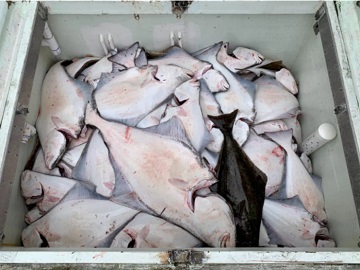



























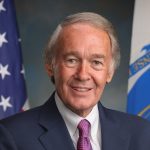
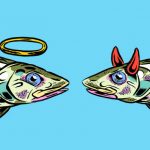
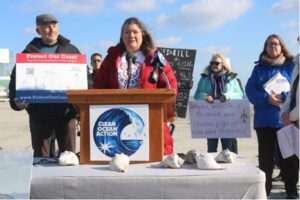
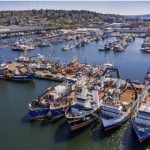


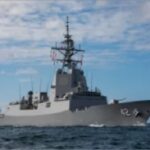
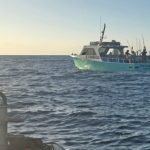
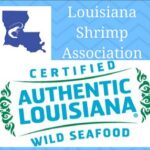
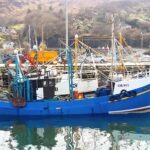
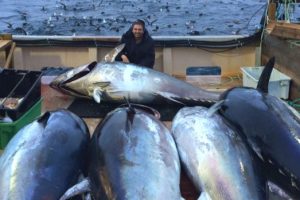
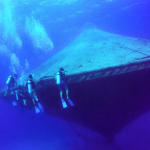
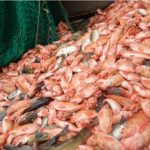
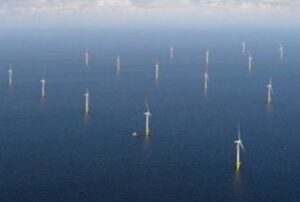
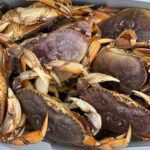



Council Comment Cancel Culture – NPFMC, citing profanity, tightens public comment policy
The North Pacific Fishery Management Council says recent profane comments had prompted the move. Some fishermen and community organizers say that’s a bunch of bull. For all the controversy and emotion that can accompany fisheries debates, the federal council that manages fisheries in the North Pacific says it hadn’t ever received public comments with explicit language, until last month.,, Linda Behnken, says she’s never seen the council move so quickly. “I mean, never seen them bring something up, take action, boom, done without more opportunity for meaningful engagement,” >click to read< 11:42
Share this post